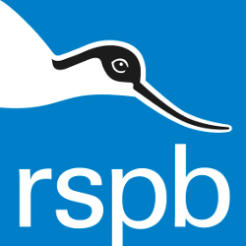Local residents and campaigners have criticised the RSPB after it applied for plannning permission to build on land it received in a legacy on the basis that it would “not be built on”.
The land was left to the wildlife charity by environmentalist Lavinia Rhead and was valued at £60,000 in 2001. But the charity could make as much as £6m from the sale of the land if planning permission is granted to build 150 houses on the 20 acres of farmland in rural Cheshire.
According to the Telegraph newspaper, it was Rhead’s “dying wish” that the land - home to barn owls, lapwings and badgers - should never be built on.
A spokeswoman for the RSPB said the charity faced a tough choice.
“On the rare occasions when it is just not possible to comply with some or all of the wishes of the deceased, then we will work with their families and executors to reach the best outcome that will benefit wildlife and honour the memory of those who have passed away,” she told Civil Society News.
“Having held for many years the land left to us by Mrs Rhead we have concluded that it has very little current or potential value for wildlife and therefore we have an obligation to consider other options.”
The decision to build on the land follows a consultation period with “the appropriate people” including the executor of Rhead’s estate, the charity said.
“They are satisfied that selling the land in order to buy and maintain other land that has greater wildlife benefits would be in keeping with Mrs Rhead's wishes,” the spokeswoman said.
'Unfortunate'
Neil Robertson, director for Northern England of the RSPB admitted it was an “unfortunate” situation.
"She wanted the land she left to us to be used for the benefit of wildlife and requested that it should not be built upon,” he told the Congleton Chronicle.
"Unfortunately we have not been able to meet both of these wishes as her land is not really beneficial to wildlife and there is little potential to improve it for nature.
"After looking at all of the options, we have decided that the best way forward is to investigate the possibility of selling the land."
But residents of the area voiced concerns that the site would remove the last remaining green space between their village and neighbouring Congleton, according to the Telegraph.
Ian Gregory, campaign director of You Forgot The Birds, said: "The reaction to this story on Twitter, Facebook and the comments sections of the Telegraph, Times and on Mail has been astonishing. There is overwhelming condemnation of the RSPB in particular and of big charities in general as being profiteering big business.
"Trust is evaporating as charities become ever more sophisticated in their marketing approach to donors but ever more shallow in their respect for them.
"Ideological campaigning charities like the RSPB are most at risk from a confidence collapse especially if their core service delivery is poor. What they need is pragmatic leadership that reconnects with their supporters’ values rather than lives in an internal echo chamber of true believers."
Gregory told the Telegraph that the Cheshire countryside was Rhead’s “great joy” during her life.
“She knew that this countryside was under threat and that’s why she asked the RSBP not to build on this land,” he said.
"It is an insult to the intelligence of the people of Cheshire for the RSPB to claim that ‘biodiversity’ will be improved by building houses on land which is home to so much wildlife.
"The RSPB calls itself ‘nature’s voice’ but if the barn owls, tawny owls and lapwings in this area could speak they would not be wanting a housing estate on their homes," said Gregory."
The land is currently allocated for development in the draft Local Plan. A final planning decision will be made by Cheshire East Council in accordance with the local planning process, according to the RSPB.









